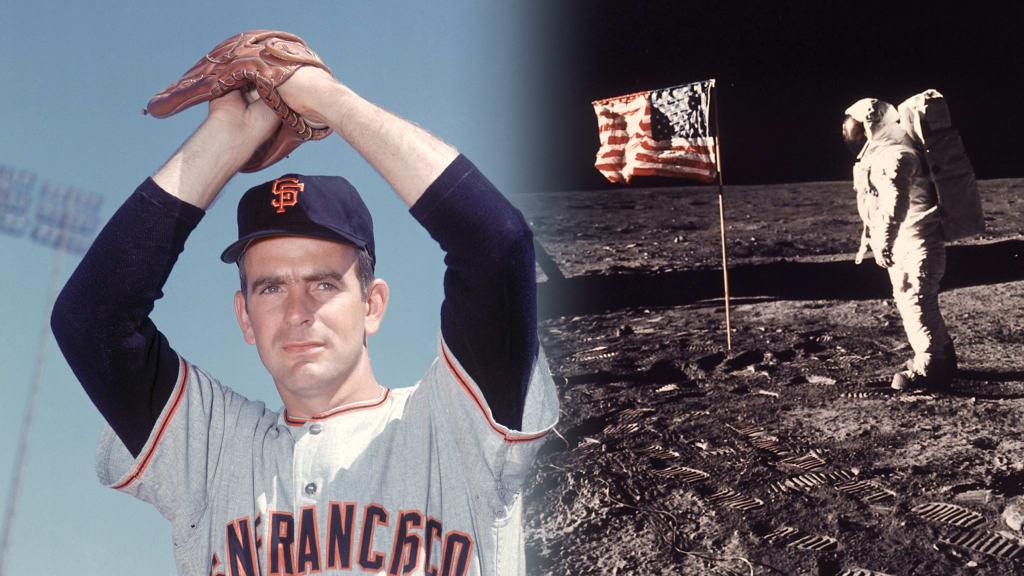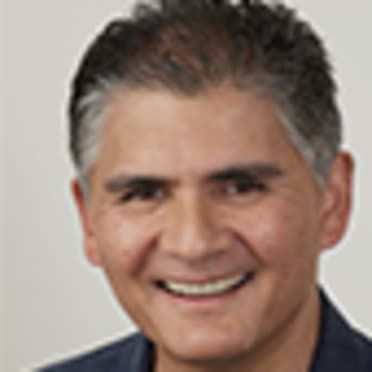
A version of this story was originally published in 2019.
On July 20, 1969, most Americans were consumed by the event of a lifetime: the Apollo 11 lunar landing. The Giants were no different.
San Francisco groundskeeper Matty Schwab found space in his work area underneath the right-field grandstand at Candlestick Park to plug in a black-and-white television set. Schwab’s hidden headquarters was close to the double doors adjacent to the Giants’ bullpen. So, thanks to Schwab, Giants relievers could sneak peeks at history during the early innings of San Francisco’s game against the Los Angeles Dodgers.
Right-hander Bob Bolin was among the Giants with divided attention. As he recently recalled, he was watching televised images of the lunar module when he heard the Candlestick audience of 32,560 erupt with a sudden ovation. “I was thinking the crowd was clapping because of the moon landing. I opened the door, and Gaylord [Perry] had hit a home run,” said Bolin, punctuating his reminiscence with laughter.
This requires some explanation amid the celebration of the 50th anniversary of Apollo 11’s exploits.
Giants right-hander Gaylord Perry, a future Hall of Famer (inducted in 1991) who passed away on Thursday, homered off Dodgers left-hander Claude Osteen in the third inning of San Francisco’s 7-3 victory the same day the Apollo 11 mission achieved glory. That the two happened nearly simultaneously drew Bolin back to something he had heard years prior.
During his tenure as Giants manager from 1961-64, Alvin Dark declared that a man would land on the moon before Perry, with his flawed swing, could hit a home run.
Here’s what Bolin, 80, had to say:
“We were just sitting around the (batting) cage. It was pitchers’ batting practice, and Gaylord was trying to hit one out. Somebody was talking about Gaylord hitting home runs, and Alvin just said, 'There’ll be a man on the moon before he hits a home run.'”
Bolin recalled Perry’s offensive shortcomings: “He just didn’t have the snap of the bat to where (a batted ball) would jump out of the ballpark.”
The initial exception occurred after Perry’s first 547 plate appearances.
Though Neil Armstrong didn’t set foot on the lunar surface until 7:56 p.m. PT, he and fellow astronaut Buzz Aldrin touched down in their module at 1:17 p.m. Because the game began at 1 p.m., the landing preceded Perry’s third-inning at-bat.
Perry declined to comment for this story, but he told MLB.com in 2009 that “over the loudspeaker, they were telling everybody to stand and give a moment of silent thanks for the astronauts who landed on the moon. And I'd say 30 minutes later, Claude Osteen grooved me a fastball, and I hit it out of the park."
Perry batted .131 during his 22-year career, which he spent mostly in the National League. So he relied less on designated hitters than he did on himself. Perry was probably a more proficient hitter than his batting average suggests; otherwise, he might not have amassed his impressive total of 303 complete games.
Starters who went the distance sometimes had to give their managers reason to keep them in ballgames by letting them “bat for themselves,” as the privilege was referred to back then. Pitchers who were truly ineffectual hitters would receive fewer chances to do that. Moreover, Perry’s homer was no fluke. He hit one in each of the following three seasons and finished his career with six.
Of course, Perry was the second-best hitter in his family. His brother, Jim, who won 215 games for the Twins, the Indians, the Tigers and the Athletics over his 17-year career, batted .199 before the DH benched him starting in 1973.
Several years before the moon landing, the Giants shared another memorable day with NASA: Oct. 3, 1962. While the Giants outlasted the Dodgers, 6-4, in the finale of a three-game playoff to win the National League pennant, astronaut Wally Schirra orbited Earth six times in his spacecraft, Sigma 7.
